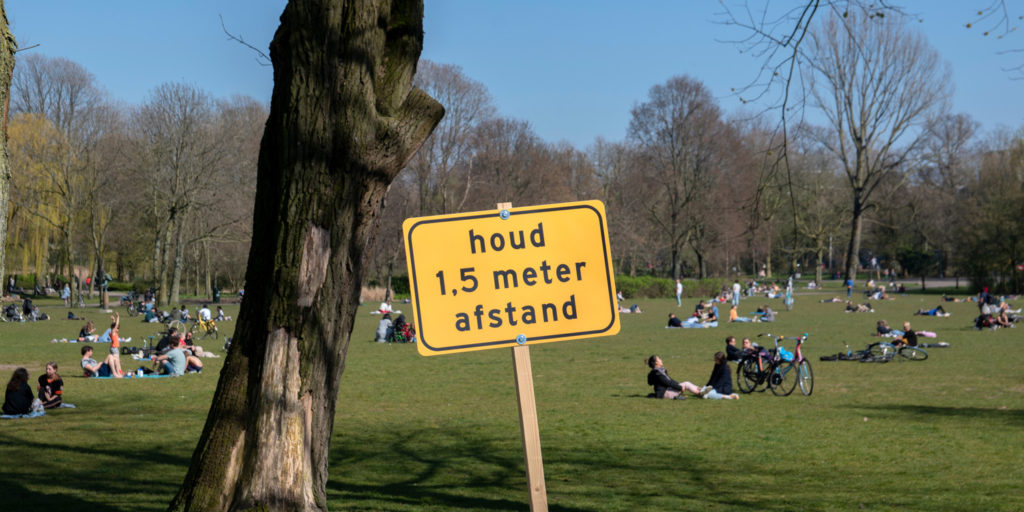Navigating on sight
by Maria Henneman 
The start of the corona pandemic. Prime Minister Rutte soon acknowledges having to navigate on sight. His advisor Jaap van Dissel of the National Institute for Public Health and the Environment in turn uses the rear-view mirror, because so much is still unknown about the coronavirus and the disease COVID19. It is too early to look ahead. The patterns of previous pandemics in history are their only point of reference.
Navigating on sight basically means navigating by feel. This quickly becomes problematic, because Rutte et al. cannot offer citizens an attractive future perspective. And they were soon confronted with this. Crisis communication involves several principles, such as: know the facts, think in scenarios, be creative but transparent and honest, be empathic. Create a clear message based on the facts and possible scenarios. This message not only tells you what it's about, but also explains what you're doing and why, so that you give citizens both a short-term and long-term perspective. Do time and expectation management, don't sit still but act. And… in a non-crisis period, prepare for possible future crises and have a roadmap ready.
As a crisis communication professional, I see that team Rutte is taking a lot of crisis communication principles to heart. Communication experts praise Rutte's empathy during his first national TV speech and that he explains the seriousness of the situation so clearly to us. Agreed, yet something bothers me. Why is the Dutch government reacting so late when you see that the virus is spreading rapidly elsewhere in Europe? It is quickly obvious that a pandemic crisis plan with possible crisis scenarios is lacking. Apart from the 1.5-metre distance measure, for us citizens, many measures are unclear and inhumane.
It bothers me because Dutch, globally renowned virologists have been warning us about outbreaks of this kind for a decade, but politicians don't act accordingly.* A few figures: swine flu in 1918 killed 50 million; the Asian flu in 1957 killed 2 million; the Hong Kong flu killed 1 million. And in 2013, in addition to many deaths, SARS caused billions of euros' worth of economic damage. In a VPRO Tegenlicht broadcast in last March, virologist Ron Fouchier wonders desperately why politicians and citizens accept so many deaths and so many tens of billions of euros in economic damage. Policymakers have also been warning politicians for years to put pandemic plans on the (international) table. To avoid chaos and deep recessions.
Do they think it's just a flu that will blow over quickly? Now we're picking up the pieces. The idea is that with a good pandemic delta plan, you identify the risks in advance and require less improvisation to, for instance, create sufficient ICU capacity and have sufficient protective equipment. Always necessary in case of a pandemic. This also means that crisis communication will be of much higher quality, with a beckoning perspective for citizens. In addition to navigating on sight and the rear-view mirror, the government has now invented the dashboard to get a better view of the pandemic. We just keep muddling on. The biggest lesson should be: politicians should listen better from now on and create a real pandemic delta plan.
*This blog is partly based on:
https://www.vpro.nl/programmas/tegenlicht/kijk/afleveringen/2019-2020/virus-van-morgen.html
